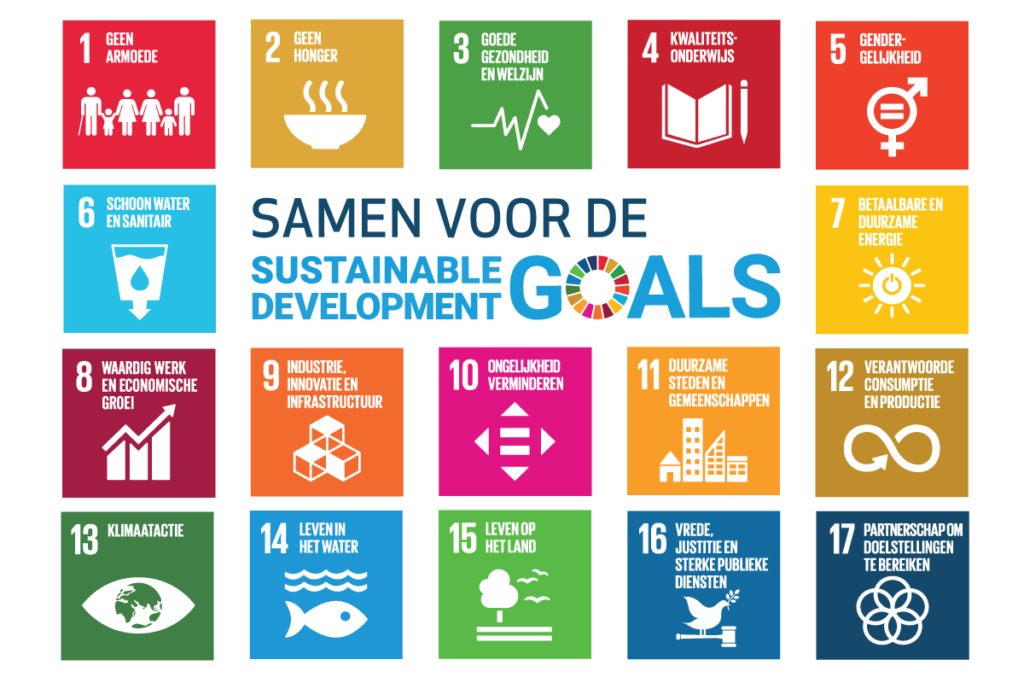UN Sustainable Development Goals
The Sustainable Development Goals are a set of seventeen goals designed to help make the world a better place by 2030. They are a global compass for challenges that include responsible production and consumption, energy, and the climate crisis. The seventeen goals have been agreed by member countries of the United Nations (UN).
A better world
The Sustainable Development Goals began in 2015 and will run until 2030. They are a global compass for challenges that include poverty, education, and the climate crisis. They are the successors to the Millennium Goals, which ran from 2000 to 2015.
Click on the plus symbol to watch a video that explains the goals.
Contribution to ten of the seventeen goals
The EU Ecolabel is a contributor to achieving ten of the seventeen Sustainable Development Goals. The following is an overview.

Goal 12: Responsible consumption and production; the most important contribution of the EU Ecolabel
At a general level, the EU Ecolabel contributes to SDG 12. The goal of the label is to reduce the environmental impact of production and consumption. Products with the EU Ecolabel satisfy strict environmental requirements that go beyond only legislation. Consequently, the label promotes more environmentally friendly production methods, giving the end user a more sustainable product. In addition, the EU Ecolabel contributes by:
- Imposing requirements on the sustainable use of natural resources, raw materials, energy, and water in production processes;
- Encouraging operators of tourist accommodation to take measures to reduce food waste;
- Limiting the use of chemical-based products and thus minimising the potential environmental impact. This helps both users and employees by preventing exposure to harmful chemicals and minimising the risk of water, soil, and air pollution;
- Reducing waste streams and encouraging the reuse of materials.
EU Ecolabel’s contributions to other goals
Goal 3 | Good health and well-being
Strict requirements on the use of chemicals in products will help to reduce the quantity of hazardous substances.
Goal 6 | Clean water and sanitation
In relevant product groups, the EU Ecolabel imposes requirements on the sustainable use of water. In addition, it also sets out measures to prevent pollution of the water environment.
Goal 7 | Affordable and sustainable energy
EU Ecolabel is a tool to help reduce overall energy consumption and the use of fossil fuels. The label supports the use of locally produced energy in products and services.
Goal 8 | Decent work and economic growth
The label offers market benefits to products and services that are more sustainable. In addition, businesses that manufacture products with the EU Ecolabel must demonstrate that they consistently comply with national regulations for working environments.
Goal 9 | Industry, innovation, and infrastructure
The EU Ecolabel contributes to the improved sustainability of industries through more efficient use of natural resources and the stimulation of more environmentally friendly and cleaner technologies and processes.
Goal 13 | Climate action
To combat climate change, the EU Ecolabel requirements set out to limit the use of fossil fuels and to promote the use of renewable energy. Limiting the emission of chemical substances that contribute to climate change is also a goal. In addition, the wood found in EU Ecolabel certified products, such as furniture and flooring, must largely and demonstrably originate from certified sustainable forests for nature conservation.
Goal 14 | Life in water
The EU Ecolabel imposes strict requirements on the use of chemicals, thus reducing the discharge of toxic substances into bodies of water, such as the oceans. In addition, personal care products and laundry detergents and cleansers must not contain micro-plastics.
Goal 15 | Life on land
The label imposes requirements on the basis for recognised certification schemes for nature conservation and sustainable exploitation (such as forestry). Consequently, the label encourages conservation of areas that are important for biodiversity.
Goal 17 | Partnerships for the goals
The EU Ecolabel is a member of Global Ecolabelling Network (GEN). This is a global partnership of external organisations working towards sustainable development through certification with ecolabels. The organisations encourage and develop ecolabelling of products and services around the world.

